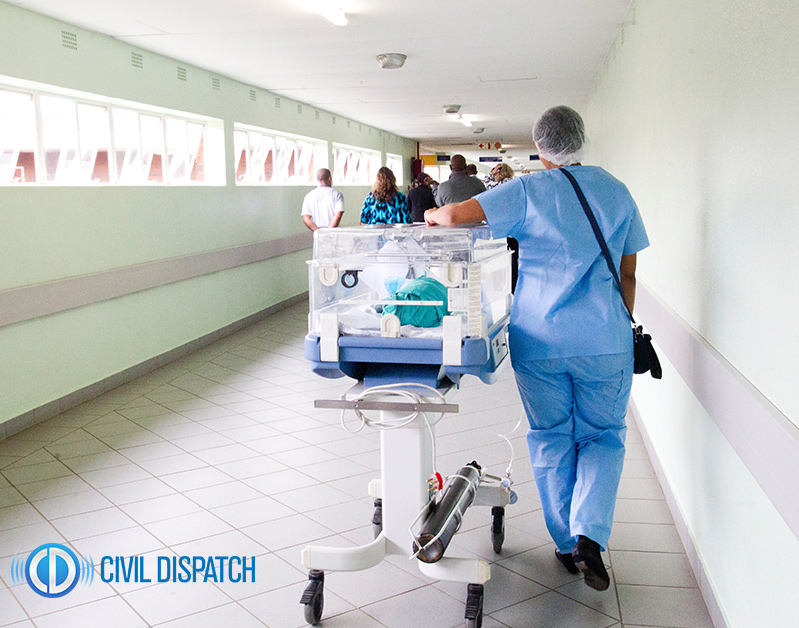
According to the Center for Disease Control (CDC), serious, contagious disease outbreaks can and do happen. CDC investigates new contagious diseases—averaging one new contagion per year. Given our vast array of transportation systems, these diseases can end up at our doorstep far more rapidly compared to any other time in recorded history.
Since pandemics are fast-moving, vaccinations would be useless. When an outbreak occurs, those living in cities, and those living in close proximity of others will be more at risk. Statistics from previous pandemics indicate that 30–60 percent of the population will contract an illness. Any pregnant women, infants, elderly people, or those with chronic medical conditions are also at risk and could be the first of the population to contract the contagious illness.
When the pandemic begins, many will remain in a state of denial about any approaching epidemics and not want to think of the long-lasting repercussions of such a disaster. Being prepared before the mass come out of their daze will ensure that you are better prepared before the hoards run to the store to stock up.
Having first-hand knowledge of the government’s protocols before this type of emergency arises can help put you ahead of the game. Understanding that our lives will change drastically if the population is faced with a pandemic and being prepared for this can help you make better choices toward the well being of your family. Some changes could be:
- Challenges or shut downs of business commerce
- Breakdown of our basic infrastructure: communications, mass transportation, supply chains
- Payroll service interruptions
- Staffing shortages in hospitals and medical clinics
- Interruptions in public facilities – Schools, workplaces may close, and public gatherings such as sporting events or worship services may close temporarily.
- Government-mandated voluntary or involuntary home quarantine.
With any type of disaster or emergency, the responsibility falls more heavily upon our shoulders to ensure that we are able to meet our needs.
However, this is not anything new to a prepper. We believe in being self-reliant, and if you have followed the 52-Weeks to Preparedness series, you should well be on your way to handle such a disaster. So how do we prepare properly for this type of emergency?
Similar to other emergencies we simply prepare as much as we can because any steps taken toward preparedness are better than none at all. Here are a few ideas to consider on how to better prepare for the family for this type of emergency:
- Taking proper illness precautions – avoid touching your mouth, nose, and eyes during any pandemic.
- Create a sick room for the home.
- Keep your immune systems up by getting lots of sleep, having a good diet, exercising and taking vitamins and antioxidants to protect your health.
- Stay inside and avoid contact with others.
- Get pandemic supplies to have on hand at a moment’s notice.
Some of the following suggestions to purchase have been repeated in previous newsletters. Ensure that you have these items on hand in order to prepare for this type of emergency.
Preps To Buy:
- One month supply of emergency foods that require no refrigeration.
- Store 1 gallon of water per person per day, in clean plastic containers. Avoid using containers that will decompose or break, such as milk cartons or glass bottles.
- Plastic sheeting
- 2-3 small wastebasket or a bucket lined with a plastic garbage bag (to dispose of clothing, soiled supplies, etc.)
- Gallon-sized zip-loc bags
- A portable toilet with disposable liners
- Supply of nonprescription drugs and pain relievers
- Cold medicines and decongestants
- Stomach remedies
- Duct tape
- Anti-diarrheal medication
- Essential oils
- Vitamins that have immune-boosting enhancers
- Fluids with electrolytes
- Bleach or disinfectant
- Soap
- Tissues
- Garbage bags to collect soiled clothing and bedding before they are washed.
- A thermometer
- Protective eye gear and/or Faceshield
- Tychem protective suit and shoe covers
- Disposable cleaning gloves (in quantity)
- Hand wipes
- Alcohol-based hand sanitizers or homemade hand sanitizer supplies
- Protective clothing
- Disposable aprons or smocks (at least 2 cases)
- Duct tape for sealing off doorways and vents
- Disposable nitrile gloves (2-3 boxes)
- Garbage bags
- N95 masks or N100 respirator masks for use when the sick person is coughing or sneezing (can be purchased at hardware stores and some drugstores)
Action Items:
- Understand your community’s role in pandemic preparedness. Find out ahead of time what your community’s protocols are in the case of a sudden onset pandemic.
- For those with special needs, ensure that you have supplies ready for them (infants, elderly, handicapped, etc.).
- Plan accordingly for pets as well.
- Talk with family members and loved ones about how they would be cared for if they became ill.
- Finding out your employer’s plans and ask your child’s school or daycare what their protocol is during epidemic outbreaks.
- Have some supplies prepared in your workplace.
- Identify how you can get information, whether through local radio, TV, the Internet or other sources.
We have your emergency communications utilities ready for you. Sign up today!